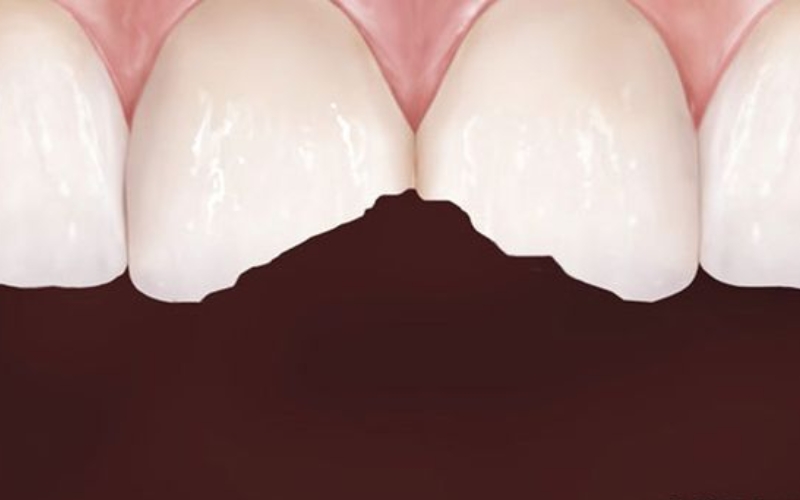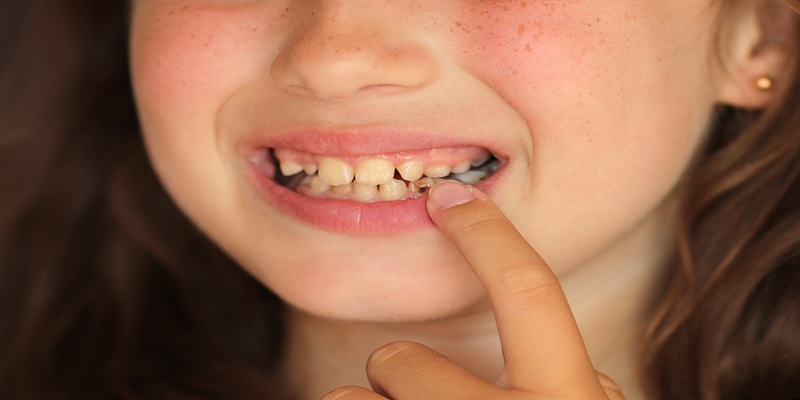Chipped Tooth Repair: What Are Your Options?

A chipped tooth might make you feel self-conscious about your smile, and accidents happen. Thankfully, there are a number of treatment alternatives available, from more long-lasting restorative remedies to fast cosmetic repairs. The reasons for chipped teeth, available treatments, and how to select the best one for your needs will all be covered in this blog.
What Causes a Chipped Tooth?
Understanding the root cause of a chipped tooth can help prevent future incidents. Common causes include:
- Biting Hard Objects: Chewing on ice, hard candy, or non-food items can weaken enamel and lead to chips.
- Trauma or Injury: Accidents during sports or falls can cause teeth to chip or break.
- Weakened Enamel: Tooth decay or enamel erosion from acidic foods and drinks makes teeth more susceptible to damage.
- Teeth Grinding (Bruxism): Chronic grinding can weaken teeth over time.
The Potential Symptoms
Sometimes, a chipped tooth is obvious, but other times, the damage can be subtle. Symptoms include:
- Visible cracks or missing portions of a tooth.
- Sensitivity to hot or cold foods and drinks.
- Sharp or jagged edges that irritate your tongue or cheeks.
- Pain when biting or chewing.
If you notice these symptoms, it’s important to consult our dentist promptly.
Treatment Options for Chipped Teeth
The right treatment for a chipped tooth depends on the severity of the damage. Here are the most common chipped tooth repair options:
1. Dental Bonding
- What It Is: A quick and cost-effective solution where a tooth-colored resin is applied and shaped to restore the tooth.
- Best For: Small chips or cracks.
- Pros:
- Affordable.
- Fast procedure (usually completed in one visit).
- Looks natural.
- Cons:
- Less durable than other options.
- May require touch-ups over time.
2. Veneers
- What It Is: Thin porcelain shells custom-made to cover the front of the tooth.
- Best For: Chips on front teeth or when multiple teeth are involved.
- Pros:
- Long-lasting and stain-resistant.
- Highly aesthetic and natural-looking.
- Cons:
- More expensive than bonding.
- Requires enamel removal, making it irreversible.
3. Dental Crowns
- What It Is: A cap that completely covers the damaged tooth, restoring its shape, size, and strength.
- Best For: Severe chips that compromise the tooth’s structural integrity.
- Pros:
- Highly durable.
- Protects the entire tooth.
- Suitable for molars subjected to heavy chewing.
- Cons:
- Requires multiple visits.
- Higher cost compared to bonding or veneers.
4. Fillings
- What It Is: A tooth-colored composite material used to fill and restore minor chips.
- Best For: Small chips on back teeth.
- Pros:
- Quick and affordable.
- Matches the tooth color.
- Cons:
- Less durable than crowns.
5. Root Canal Therapy (if needed)
- What It Is: A treatment to remove damaged pulp and seal the tooth if the chip exposes the inner pulp.
- Best For: Chips that cause severe pain or infection.
- Pros:
- Saves the natural tooth.
- Prevents infection from spreading.
- Cons:
- Requires multiple visits.
- Involves a more extensive procedure.
6. Dental Implants (in extreme cases)
- What It Is: If the chipped tooth is beyond repair, it may need to be extracted and replaced with a dental implant.
- Best For: Severely damaged teeth that cannot be saved.
- Pros:
- Permanent solution.
- Restores both function and aesthetics.
- Cons:
- Expensive and time-intensive.
What To Do Immediately After Chipping a Tooth?
If you chip a tooth, here are steps you can take to minimize damage before visiting our dentist:
- Rinse Your Mouth: Use warm water to clean the area.
- Save Any Broken Pieces: If possible, store them in milk or saline solution to preserve them.
- Apply a Cold Compress: Reduce swelling and discomfort.
- Avoid Using the Tooth: Chew on the opposite side until repaired.
- Relieve Pain: Use over-the-counter painkillers if necessary.
How To Prevent It From Occurring Next Time?
Prevention is always better than repair. Here’s how to protect your teeth:
- Avoid chewing on hard objects like ice or pens.
- Wear a mouthguard during sports or if you grind your teeth at night.
- Practice good oral hygiene to strengthen enamel.
- Get regular dental check-ups to address minor issues before they worsen.
In the end, a chipped tooth can be a distressing experience, but modern dentistry offers a range of effective repair options tailored to your needs. Whether it’s a quick fix with bonding or a durable solution like crowns or veneers, there’s a treatment that can restore your smile and confidence.
Remember, acting promptly after chipping a tooth can prevent further complications. Consult our dentist to determine the best course of action and enjoy a beautiful smile. Let us know if you need assistance with your chipped tooth repair—we’re here to help!





